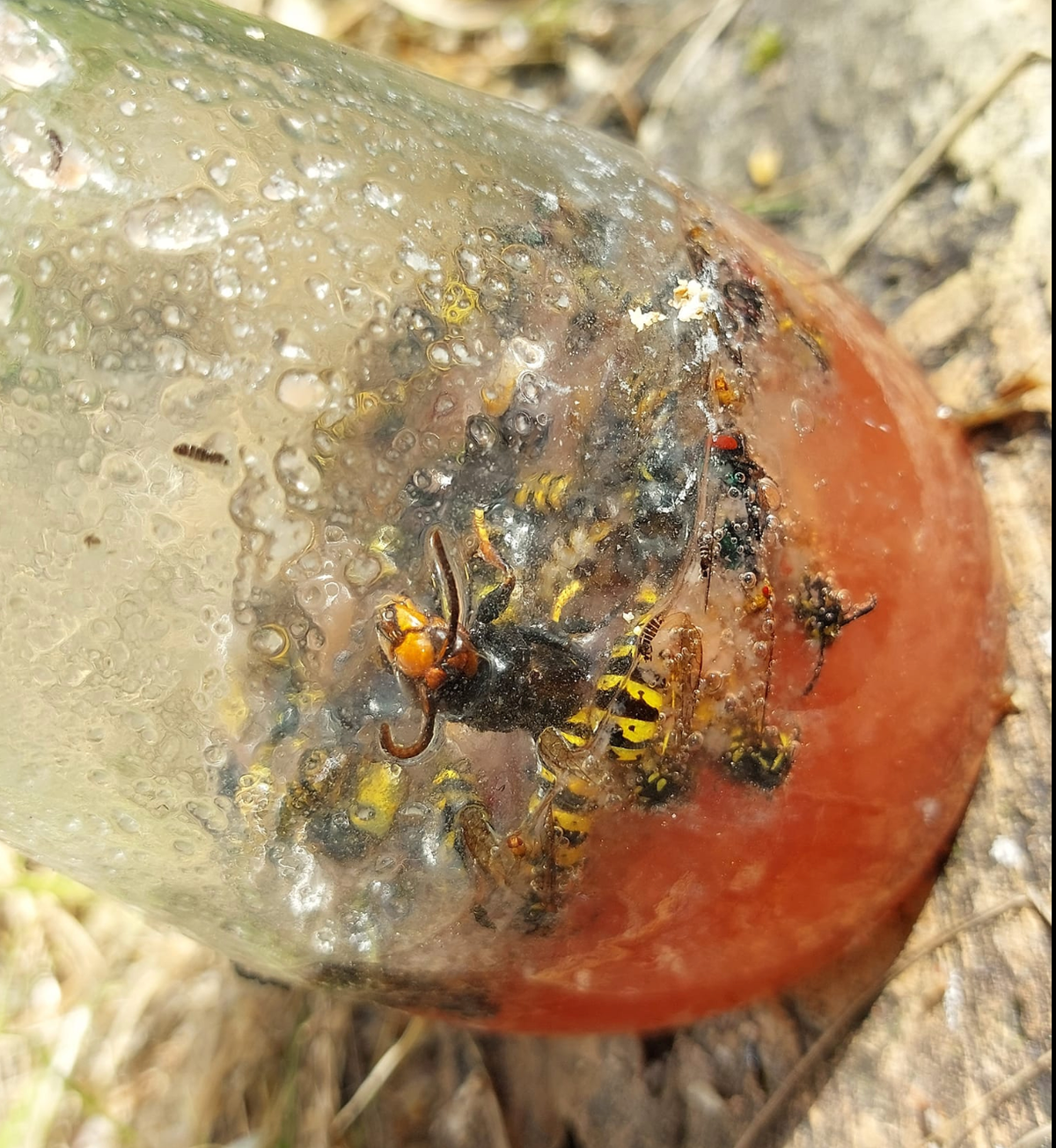
Asian hornets, an invasive species native to southeast Asia, have been sighted twice in Kent.
The hornets are a foreign species that pose a “major threat” to honey bees in Britain, experts have warned.
One man from Folkestone took photos of what he presumed to be Asian hornets to Facebook, where residents confirmed his fears and urged him to report it on the Asian Hornet Watch App.
Harry Arnold-Baldwin told The Independent: “My dad has jam jar traps around his bee hives, to keep the wasps from attacking the hives.”
An Asian hornet trapped in a jam jar in Kent, 23 August 2023.— (Harry Arnold-Baldwin)
Asian hornets feed on honeybees and are said to be able to hunt down and eat 30 to 50 honeybees a day, according to The British Beekeepers Association.
Another Asian hornet was spotted in Folkestone last week, an area recently dubbed the “mainland front-line” in the battle to stop the killer species from establishing itself in the UK.
Record numbers of the species have been sighted in the UK this year, with the first sighting in London confirmed this week.
Almost 35 per cent of the UK’s confirmed sightings of Vespa Velutina have come this month alone.
The unpopular species was accidentally introduced to France in 2004 and has since caused havoc to the ecosystems of neighbouring countries, according to The Non-Native Species Secretariat.
The NNSS describes the hornet as “a highly aggressive predator of native insects, posing a significant threat to honey bees and other pollinators.”
The Asian hornet spotted in London was found by a beekeeper harvesting honey from beehives in his Thamesmead garden.
Asian hornet filmed devouring wasp in Kent garden.— (SWNS)
“I saw a huge creature flying around and it crossed my mind thinking ‘that’s just a big wasp or a hornet’,” Joel Soo, 43, told the Evening Standard.
“When I saw the tell-tale signs of an Asian hornet, I quickly ran to my kitchen to get whatever container I could. I told myself ‘I need to catch this fellow, because if it’s just a sighting it’s just talk’.”
After informing the Animal and Plant Health Agency’s National Bee Unit (NBU) about his suspicions, the NBU visited Mr Soo and found an Asian hornet nest in a tree near to Mr Soo’s home.
The Department for Environment, Food and Rural affairs (Defra) confirmed it would be destroying the nest.
There have been 46 confirmed sightings in the UK since 2016, 23 of which have been reported this year, including 16 this month.
The hornet typically has yellow legs and a dark body with a signature yellow band on its fourth segment.







